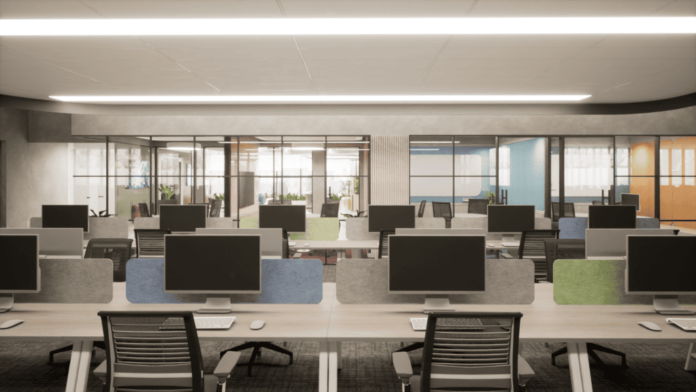Amid a rapidly evolving work landscape, the office cubicle—the once-staple of office spaces—is undergoing a remarkable transformation. The Philippines, with its burgeoning business process outsourcing (BPO) industry and innovative tech sector, finds itself at the forefront of these changes. From flexible designs to cutting-edge technologies, here’s a glimpse into how the future of work is shaping office cubicles in the Philippines.
Office Cubicle
Gone are the days of rigid, isolated cubicles. Modern offices in the Philippines are embracing flexible, open layouts that office cubicle encourage collaboration and communication among employees. The traditional cubicle walls are being replaced with modular, movable partitions that can be rearranged to suit different team sizes and projects. This adaptability not only fosters a sense of teamwork but also allows for a more dynamic work environment.
Incorporating Nature Indoors
Recognizing the positive impact of nature on productivity and well-being, many Philippine offices are integrating biophilic design elements into their cubicle spaces. This includes incorporating plants, natural lighting, and even nature-inspired color schemes. Not only does this create a more visually appealing workspace, but it also contributes to a healthier, more relaxed atmosphere for employees.
Smart Cubicles with IoT Integration
The Philippines is embracing the Internet of Things (IoT) revolution, and office cubicles are not exempt. Smart cubicles equipped with IoT sensors can adjust lighting and temperature based on occupancy, saving energy and ensuring employee comfort. These cubicles may also feature connected devices such as smart desks that adjust height, monitor sitting time, and even remind employees to take breaks for better ergonomics and health.
Enhanced Privacy Options
While collaboration is essential, so is the need for privacy when employees require focus or confidentiality. Office cubicles in the Philippines are being designed with adjustable privacy screens, soundproofing materials, and even high-tech solutions like noise-canceling features for phone calls. This balance between openness and privacy ensures that employees can work efficiently without distractions.
Wellness-Centric Designs
Employee well-being is a top priority for forward-thinking companies, and office cubicles are being designed with this in mind. Ergonomic furniture, such as chairs with lumbar support and adjustable desks, are becoming standard. Some cubicles even feature small relaxation areas with comfortable seating, encouraging employees to take short breaks and recharge during the workday.
Virtual Reality (VR) Workspaces
As remote work continues to gain popularity, some Philippine offices are exploring the use of virtual reality (VR) to create immersive virtual workspaces. Employees can don VR headsets and collaborate in a shared digital environment, complete with virtual cubicles and interactive tools. This innovative approach not only facilitates remote work but also provides a unique and engaging way for teams to connect.
Steel Cabinet
Recognizing that steel cabinet a one-size-fits-all approach doesn’t suit everyone, office cubicles in the Philippines are offering more options for personalization. Employees can customize their workspace with adjustable lighting, color schemes, and even modular furniture arrangements. This sense of ownership fosters a greater sense of comfort and productivity among workers.
Sustainability and Green Initiatives
With a growing emphasis on sustainability, office cubicles in the Philippines are being designed with eco-friendly materials and practices. This includes using recycled materials for furniture, implementing energy-efficient lighting, and encouraging paperless workflows. Companies are also promoting green initiatives such as recycling programs within the office space, creating a more environmentally conscious work environment.
The office cubicle in the Philippines is undergoing a significant evolution, reflecting the changing nature of work and the priorities of modern employees. From flexible layouts to smart technologies and a focus on employee well-being, these innovations are shaping the future of workspaces across the country. As the BPO industry continues to thrive and the tech sector drives innovation, we can expect to see even more exciting developments in the years to come, making the office cubicle a hub of productivity, collaboration, and creativity.







